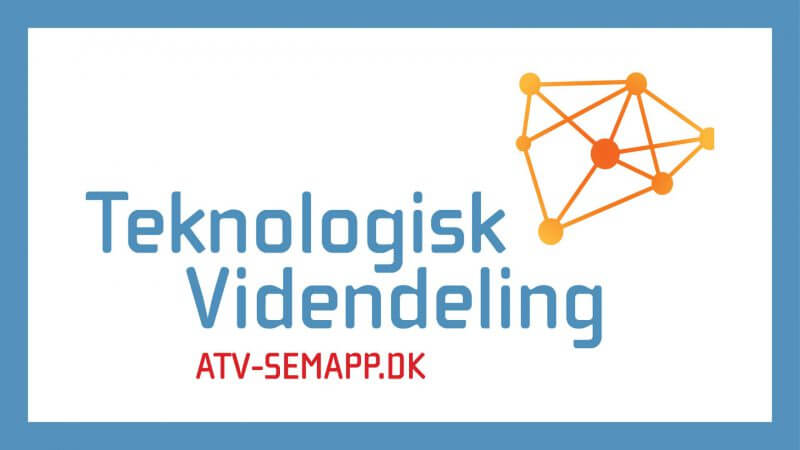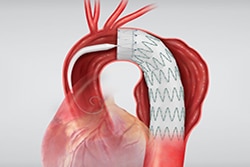ATV-SEMAPP inviterer til ‘Sterilization of plastics and elastomers’

Den 19. maj 2022 inviterer ATV-SEMAPP til seminaret ’Sterilization of plastics and elastomers’, der sætter fokus på lovgivning, samt teknologiske muligheder for sterilisering af plast til bl.a. medico- og fødevareindustrien.
Vær med når ATV-SEMAPP slår dørene op for seminaret ’Sterilization of plastics and elastomers’ på DTU Risø Campus den 19. maj 2022.
I medicinal- og fødevareemballageindustrien er det nødvendigt at sterilisere bestemte polymerprodukter. Det er en stor udfordring, da polymerprodukter ikke tåler samme type sterilisering som f.eks. stålprodukter.
Seminaret fokuserer på forskellige steriliseringsmetoder der kan anvedes for polymerbaserede produkter: Stråling, ethylenoxid (EO eller EtO) og damp.
Især strålingsterilisering er udfordrende for polymerprodukter, hvorfor der gives en dybdegående indflyvning i den teoretiske baggrund for strålingsterilisering. Udover at dækker de tekniske aspekter af steriliseringen, vil oplægsholderne også give et indblik i lovgivningen på området.
Sidst på seminaret skues der ind i fremtiden, hvor programmet byder på et oplæg om Super Critical CO2 – en steriliseringsmetode under udvikling.
Program
|
Registration and breakfast | |||
|
Welcome and introduction | |||
|
Radiation facilities for radiation sterilizationArne Miller, Specialist Consultant, DTU Health Technology
Arne Miller has worked at Risø since 1969. Arne has operated a radiation sterilization process at Risø, he has served as editor-in-chief for Radiation Physics and Chemistry, and he heads the accredited Risø High Dose Reference Laboratory. Arne is active in several Danish and international committees related to radiation sterilization and radiation processing. |
|||
|
Moist heat (steam) sterilization of pen needlesAnne-Dorthe Bonde Loven, Senior Microbiologist, Novo Nordisk
This presentation will introduce the product, the sterilisation process, some of the regulatory expectations to qualification of the process (ISO 17665-1), and also highlight some of the main challenges we have had in relation to product quality. Anne-Dorthe B. Loven is Senior Microbiologist at Novo Nordisk A/S, where she has been working with moist heat sterilisation since 2005. She holds an industrial PhD in Cryopreservation of porcine hepatocytes from The Royal veterinary- and Agricultural University / Novo Nordisk A/S. |
|||
|
Coffee and networking break | |||
|
EO sterilization; Process mechanisms, advantages and limitations in relation to sterilization of polymersJan Douglas, Global Program Manager – Aortic Therapies, Thoracic EO sterilization SME, Cook Medical
Jan Douglas has spent the last 18 years working for Cook Medical in different Engineering management positions. He has from the beginning been responsible for designing, commissioning, implementing and operating EO sterilization systems in-house at Cook Medical’s Danish manufacturing site. |
|||
|
Lunch and networking | |||
|
The effects of radiation on polymer materialsFrederik R. Steenstrup, Team Manager – Plastics and Packaging, Danish Technological Institute
While some polymeric materials resist degradation from relatively high sterilization doses, other polymeric material loose mechanical properties or become yellow as a result of only 25 kGy dose. In some cases, the type of radiation (gamma vs. e-beam) can determine whether a plastic survives sterilization or not. My presentation will introduce you to the effects of radiation on plastic materials so that informed material choices can be made and tested at an early stage. For more than 20 years, Frederik R Steenstrup has worked with medical devices, both with early product development and late-stage verification testing. As head of DTI’s plastics laboratory, Frederik assists Danish industry with (among other) material change projects and ageing studies. |
|||
|
Sterilization by super critical CO2 – why and when?Mark Holm Olsen, Specialist, ph.d., Danish Technological Institute
Mark Holm Olsen is a biomedical Engineer, working as a specialist at the Danish Technological Institute. His focus is on developing and processing polymer materials for healthcare applications and recycling. Mark is responsible for the super critical CO2 setup used for sterilization, extraction, impregnation, and cleaning of everything from medical devices to recycled plastics and spent coffee grounds. |
|||
|
Closing remark |
Tilmelding
Tilmelding foregår hos ATV-SEMAPP via dette link: ‘Sterilization of plastics and elastomers‘
Medlemmer af Plastindustrien får rabat ved tilmelding.
Såfremt du har nogle spørgsmål kan ATV-SEMAPP kontaktes på mail atv-semapp@mek.dtu.dk.


 Medical devices made from polymers are radiation sterilized by gamma (Cobalt-60), e-beam or x-ray. The characteristics of these facilities are reviewed, as well as their pros and cons. The radiation sterilization process is validated and operated in accordance with the requirements in the international standard ISO 11137. It is discussed how these requirement are fulfilled, and how measurement of the radiation dose plays an important role in this context.
Medical devices made from polymers are radiation sterilized by gamma (Cobalt-60), e-beam or x-ray. The characteristics of these facilities are reviewed, as well as their pros and cons. The radiation sterilization process is validated and operated in accordance with the requirements in the international standard ISO 11137. It is discussed how these requirement are fulfilled, and how measurement of the radiation dose plays an important role in this context.
 Pen needles are made mainly from polypropylene – and then there is the metal cannula, some glue and the sealing paper. They all react differently during the autoclave process made to obtain sterility – but also made not to destruct the product.
Pen needles are made mainly from polypropylene – and then there is the metal cannula, some glue and the sealing paper. They all react differently during the autoclave process made to obtain sterility – but also made not to destruct the product.
 Gaseous Ethylene Oxide has been utilized as a general sterilant since the 1950’s and specifically for Medical devices since the 1980’s. The effectiveness of this sterilization modality comes from high chemical reaction speed, the ability to penetrate and the overall material applicability. However, limitations such as density and residuals should be taken into consideration in dealing with polymers.
Gaseous Ethylene Oxide has been utilized as a general sterilant since the 1950’s and specifically for Medical devices since the 1980’s. The effectiveness of this sterilization modality comes from high chemical reaction speed, the ability to penetrate and the overall material applicability. However, limitations such as density and residuals should be taken into consideration in dealing with polymers.

 Sterilization by super critical CO2 has been used for years, primarily on super sensitive biobased samples like implants. More recently it has been chosen by the FDA in 2019, as one of five technologies most promising to replace ethylene oxide. The FDA innovation challenge has sparked new life to the interest in super critical CO2 as a sterilization technique for the broader market.
Sterilization by super critical CO2 has been used for years, primarily on super sensitive biobased samples like implants. More recently it has been chosen by the FDA in 2019, as one of five technologies most promising to replace ethylene oxide. The FDA innovation challenge has sparked new life to the interest in super critical CO2 as a sterilization technique for the broader market.